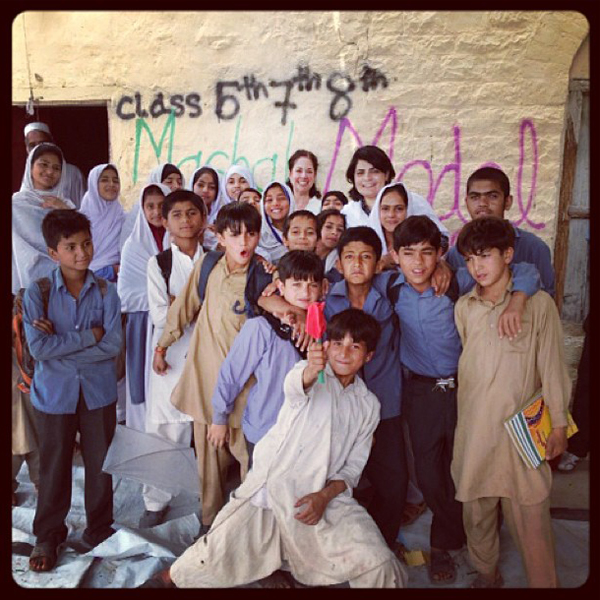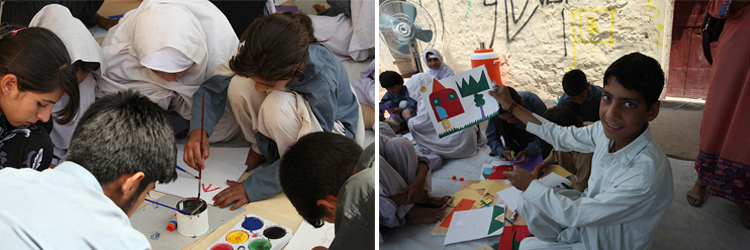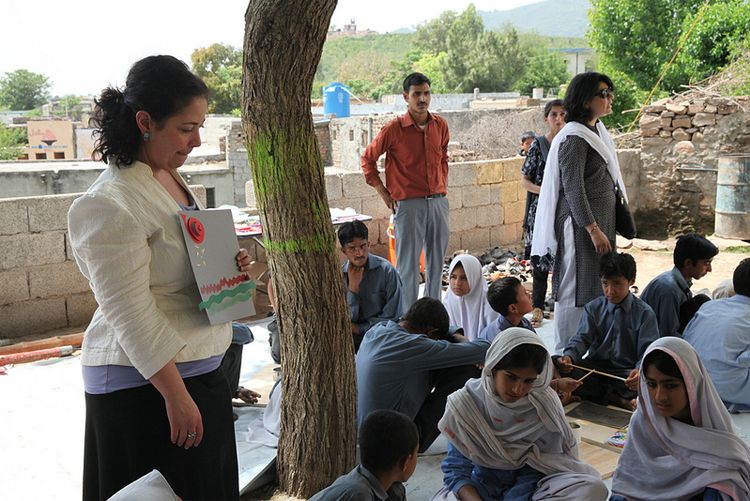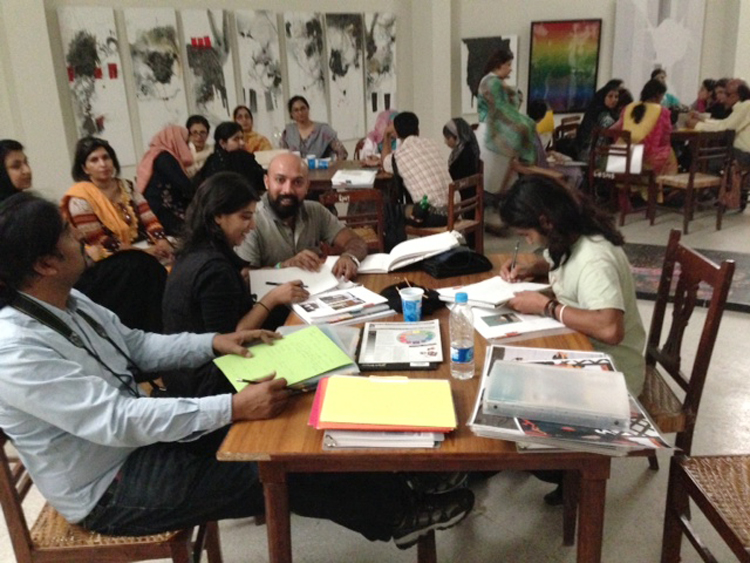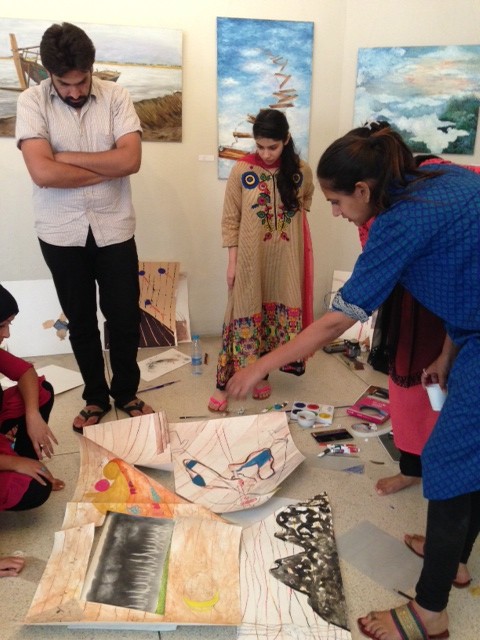Read Rachel’s last post in her series on teaching art workshops in Pakistan here. You can follow her on Twitter @EducatorRachel and also on Instagram.
Today was my last day in Pakistan and what an adventure it’s been! I’ve worked with artists, students, curators, teachers, and museum/gallery professionals from all walks of life and from every corner of Pakistan. Today’s workshop was with art teachers from Islamabad and the surrounding areas. We used the Phillips’s Jacob Lawrence and The Migration Series Teaching Kit to explore different ways to teach art at their school. This group of educators was enthusiastic and eager. Together they brainstormed wonderful lesson ideas. Some teachers talked about using The Migration Series to inspire their students to write poetry, others proposed using it as a way to introduce the idea of beginning/middle/end in storytelling, and there was much discussion about comparing and contrasting Lawrence’s migration story to the stories of those Pakistanis who migrated during partition.
I have had an incredibly rich, warm, and world-view expanding experience here in Pakistan over the last couple of weeks, and I am incredibly grateful to have been sent on this journey! Stay tuned for an article with more details about my adventure in the Phillips’s fall members magazine. In the meantime, I’m signing off from Islamabad.
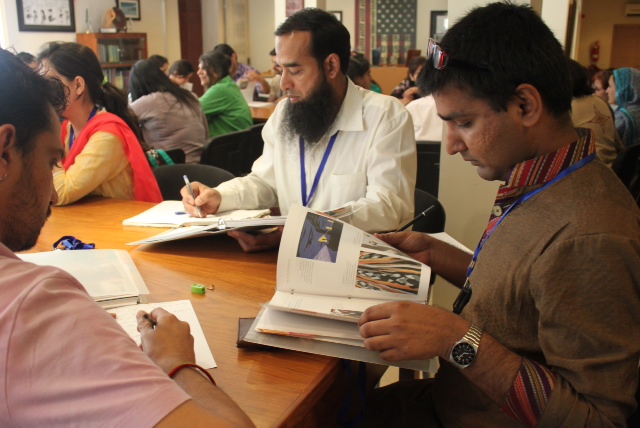
Art teachers use the kit to brainstorm ideas for using the migration series in their classroom. Photos: Rachel Goldberg.
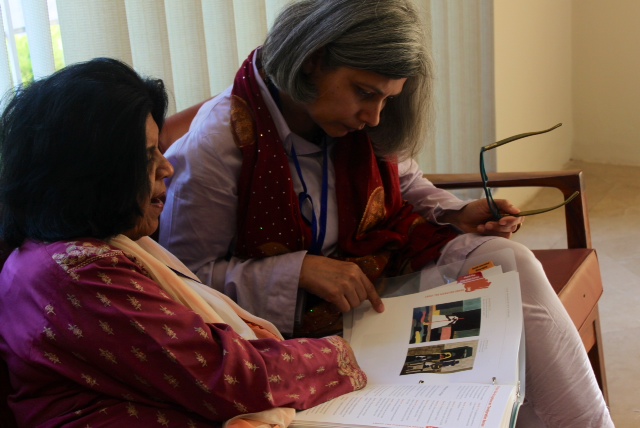
Teachers consider the universal themes in Lawrence’s work and discuss ways to integrate the arts into their lessons.
Rachel Goldberg, Manager of School, Outreach, and Family Programs

